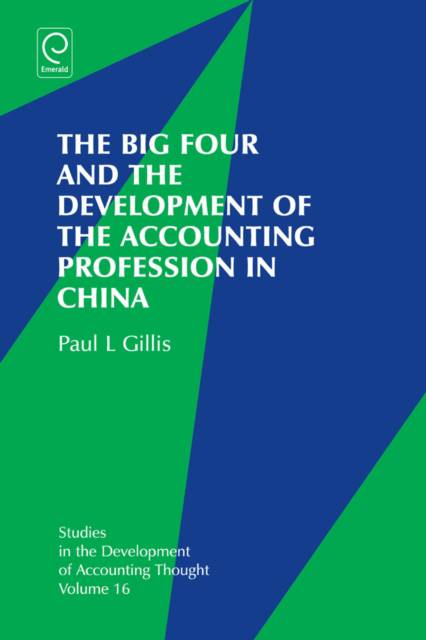
- Afhalen na 1 uur in een winkel met voorraad
- Gratis thuislevering in België vanaf € 30
- Ruim aanbod met 7 miljoen producten
- Afhalen na 1 uur in een winkel met voorraad
- Gratis thuislevering in België vanaf € 30
- Ruim aanbod met 7 miljoen producten
Zoeken
The Big Four and the Development of the Accounting Profession in China
Paul Gillis
€ 160,95
+ 321 punten
Omschrijving
Drawing upon established academic theory, the study argues that the Big Four, as part of a globalizing transnational capital class, has dominated indigenous firms by bringing to China an ideology that came to be accepted as normative. By winning this battle of ideology, the Big Four gained access to the coercive power of the State, and to the power of transnational institutions that have subsumed part of the power of the State. Indigenous firms have pursued a counter-hegemonic strategy of undermining the ideological superiority of the Big Four through the infiltration and modification of institutional arrangements following what the academic literature calls "the long march through the institutions.
Specificaties
Betrokkenen
- Auteur(s):
- Uitgeverij:
Inhoud
- Aantal bladzijden:
- 368
- Taal:
- Engels
- Reeks:
- Reeksnummer:
- nr. 16
Eigenschappen
- Productcode (EAN):
- 9781783504855
- Verschijningsdatum:
- 21/02/2014
- Uitvoering:
- Hardcover
- Formaat:
- Genaaid
- Afmetingen:
- 155 mm x 231 mm
- Gewicht:
- 566 g

Alleen bij Standaard Boekhandel
+ 321 punten op je klantenkaart van Standaard Boekhandel
Beoordelingen
We publiceren alleen reviews die voldoen aan de voorwaarden voor reviews. Bekijk onze voorwaarden voor reviews.








